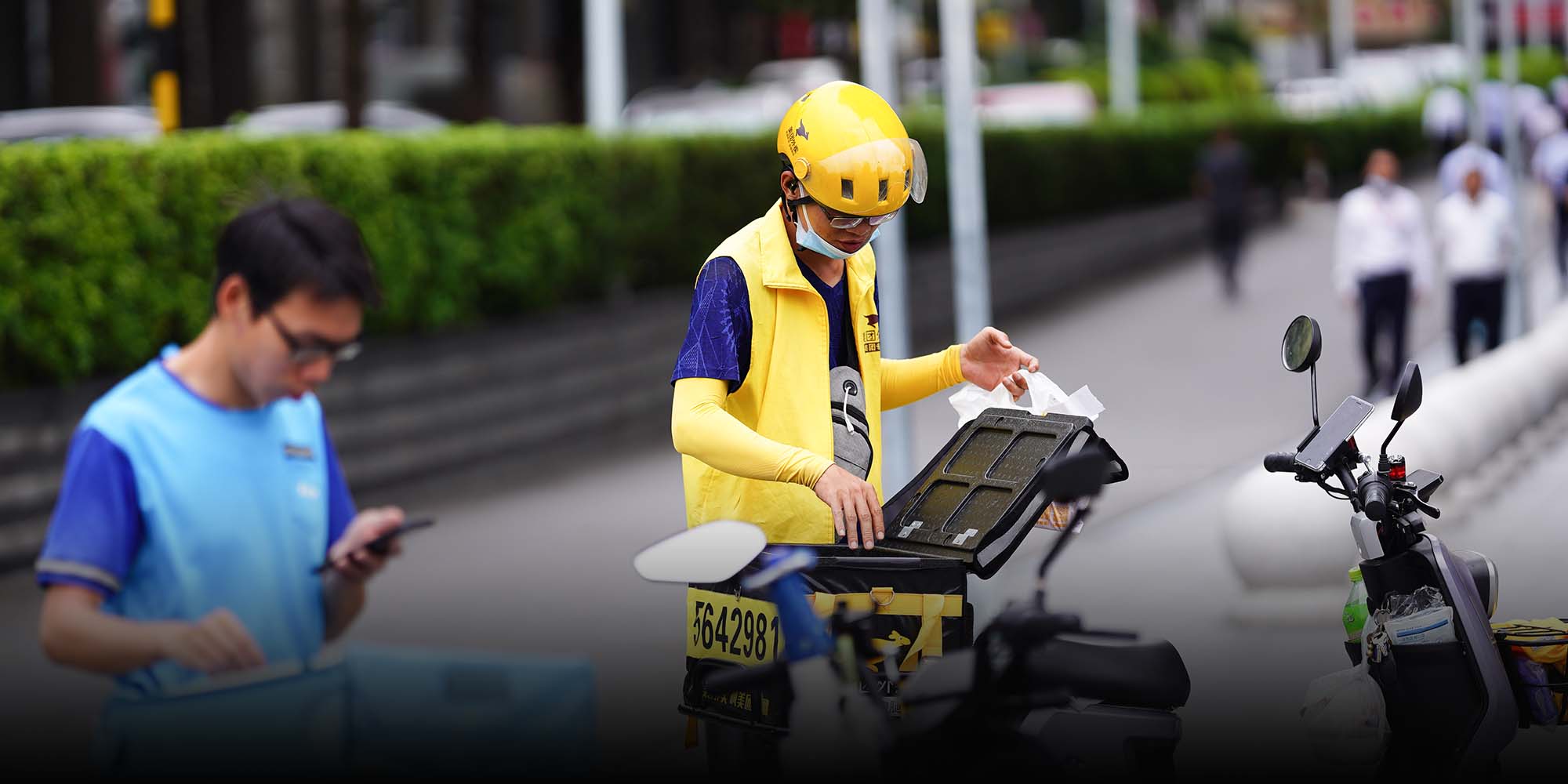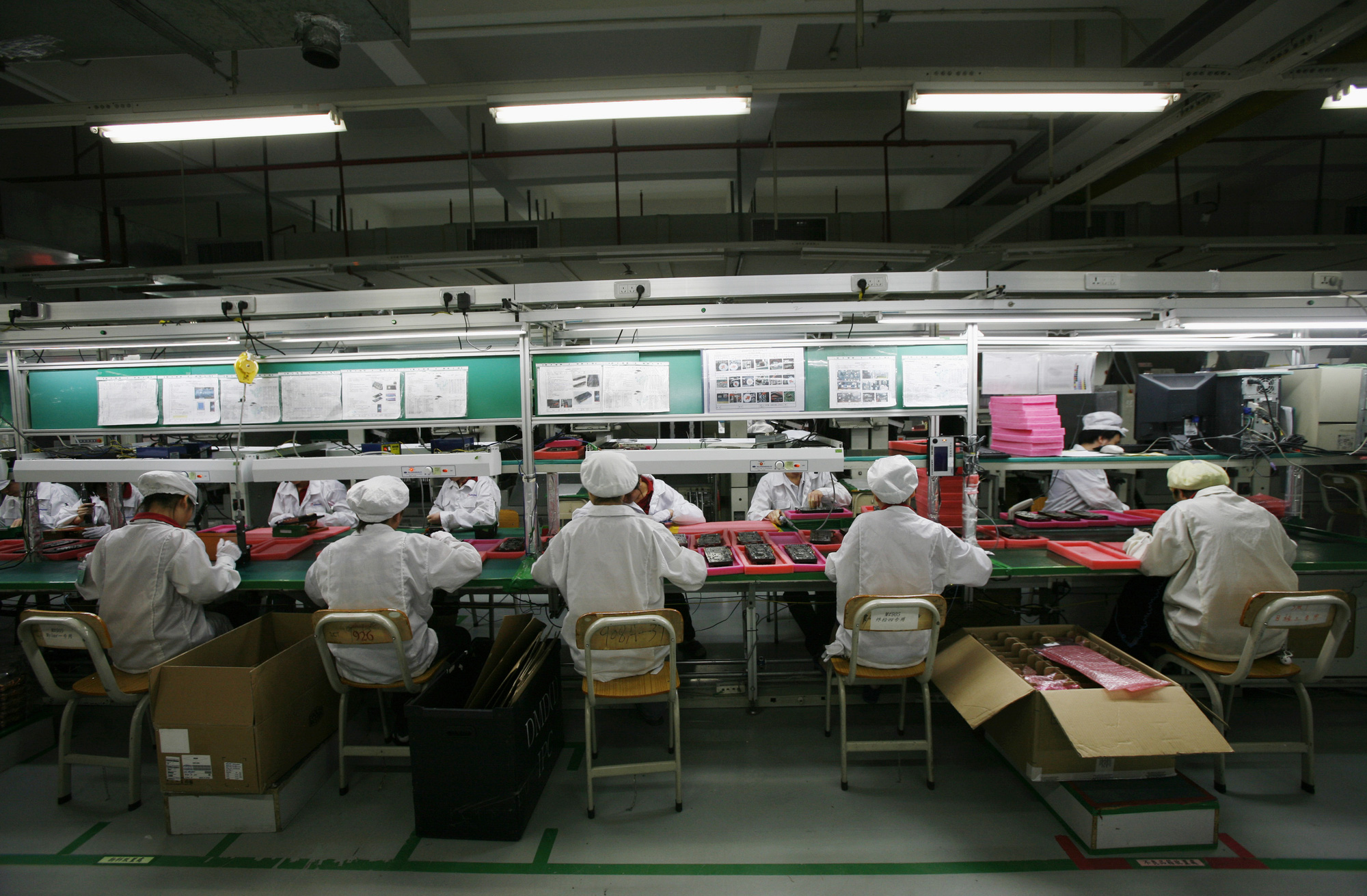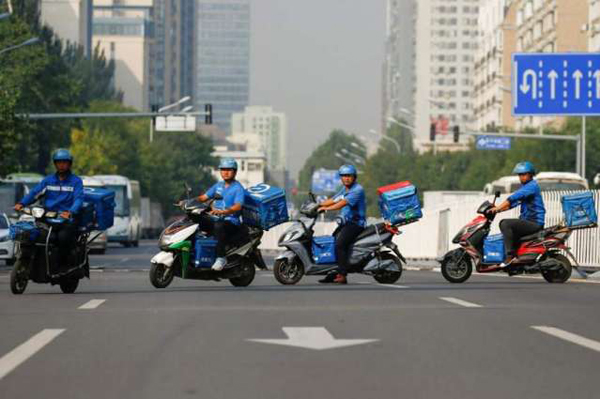At the recent annual meeting of China’s legislature, a series of factory owners petitioned that the food delivery industry was overusing their workers – and asked the government to help them hire this force.
Zhang Xinghai, a member of the National People’s Congress and chairman of Xiaokang Automobile Group in Chongqing, has proposed that the government subsidize factory wages to help the industry compete with major technology platforms. .
Earlier in February, the Ministry of Manpower and Social Security of this country announced the list of 100 occupations with the most underemployment. Forty-three occupations are listed that belong to manufacturing.
Mr. Zhang attributed this to low wages in the manufacturing industry, adding that an average of 1.5 million workers left the manufacturing industry each year in the past five years.

Delivery workers have become a key industry in the modern economy.
Zhang’s proposal has attracted great attention on Chinese social media, becoming one of the most trending topics on social platform Weibo on March 9. Most netizens said tech drivers enjoy more freedom than factory workers.
“Who would work in a factory except those over 40? The working hours are long – one or two days off per month – the pay is low, and the food is boring. Most factory jobs are also not good for your health.”a Weibo user wrote. “And when it comes to delivering food, I can take at least a day off if I don’t want to work.”
The wages of food delivery drivers have increased rapidly in recent years. Some drivers even receive a salary that exceeds the income of the office workers they usually deliver food. And that’s why the factory owners say they can’t compete.
According to a report released by the Guangzhou Trade Union Union on March 2, the annual income of delivery drivers in this city is more than 100,000 yuan (about 360 million dong), an increase of 17% compared to the previous year. with the previous year. More than 10% of them earn more than 10,000 yuan (about more than 36 million dong) a month, the report shows.
In contrast, excluding accommodation, the typical monthly salary of a factory worker in Guangzhou last year was only about 6,000 yuan (about 21 million dong), including social benefits.
“There is no room to raise wages for workers,” said Zhao Yunhai, a garment factory owner in Guangzhou. “While the price of the product has not increased much, the rent has increased.”
Zhang suggested that the government provide factories with employment allowances for new employees, and certain income subsidies and insurance subsidies for temporary employees hired to work on individual orders. He also proposed special policies to support wages in “China’s strategic emerging industries.”

Factories in China are very short of workers, because few people want to work.
Jenny Chan, assistant professor of sociology at Hong Kong Polytechnic University, says that sharing economy (GIG) platforms offer workers high salaries and quick money.
“Drivers are not officially employed by the law. They are not entitled to social insurance and housing funds.”Chan said.
That means drivers’ real wages are even higher, at least in the short term. Garment factory owner Zhang believes that food delivery is a low-skill job, and that those who make quick money are mainly “home-cooked,” meaning they are not prepared for the future.
But, making money fast is also an advantage. Food delivery drivers for prominent platforms in China like Meituan and Ele.me can earn from the app at any time, and they will see the money in their bank accounts within 48 hours. hour. And factories pay workers once a month.

Shippers in big cities in China earn more than office workers.
But the shipper also has its downside.
“Wages (product wages) for food delivery are very low,” Mr. Chan said. “However, drivers may work long hours to increase their income.”
A report released by the Guangzhou Trade Union Federation also shows that more than 90% of drivers work more than 10 hours a day. In addition, shady issues in the hiring practices of platforms in the food delivery industry worried Mr. Chan.
“When compared to previous manufacturing or construction jobs, some delivery workers earned more, but they weren’t even considered employees.” Chan said. “Delivery workers do not necessarily have a written employment contract. In the event of a dispute, it is difficult for them to protect their rights and interests.”
But for factories to be able to compete on working conditions, bosses will need to deal with their own problems, Chan added.
“If migrant workers are guaranteed higher wages and more protection in factories, it would make sense to encourage them to return.” he said. “Otherwise, with the freedom to log in or out of the apps, they can still choose to be a delivery driver.”
Refer Sixthtone
